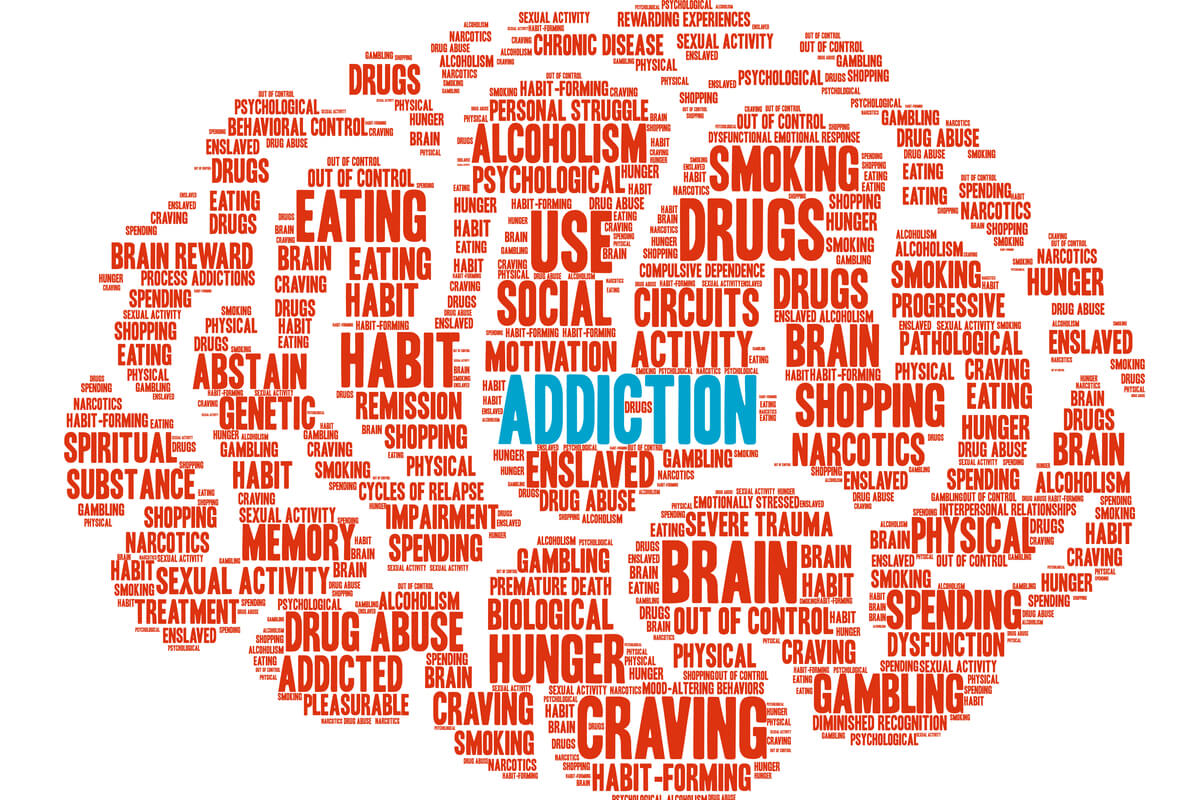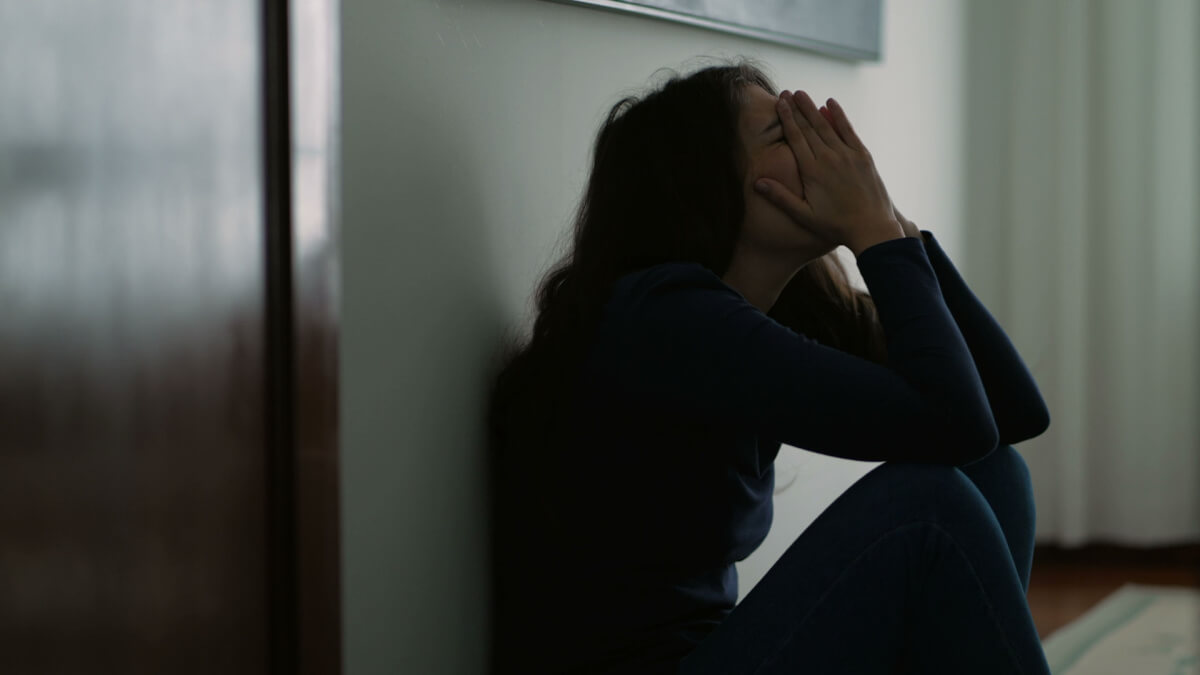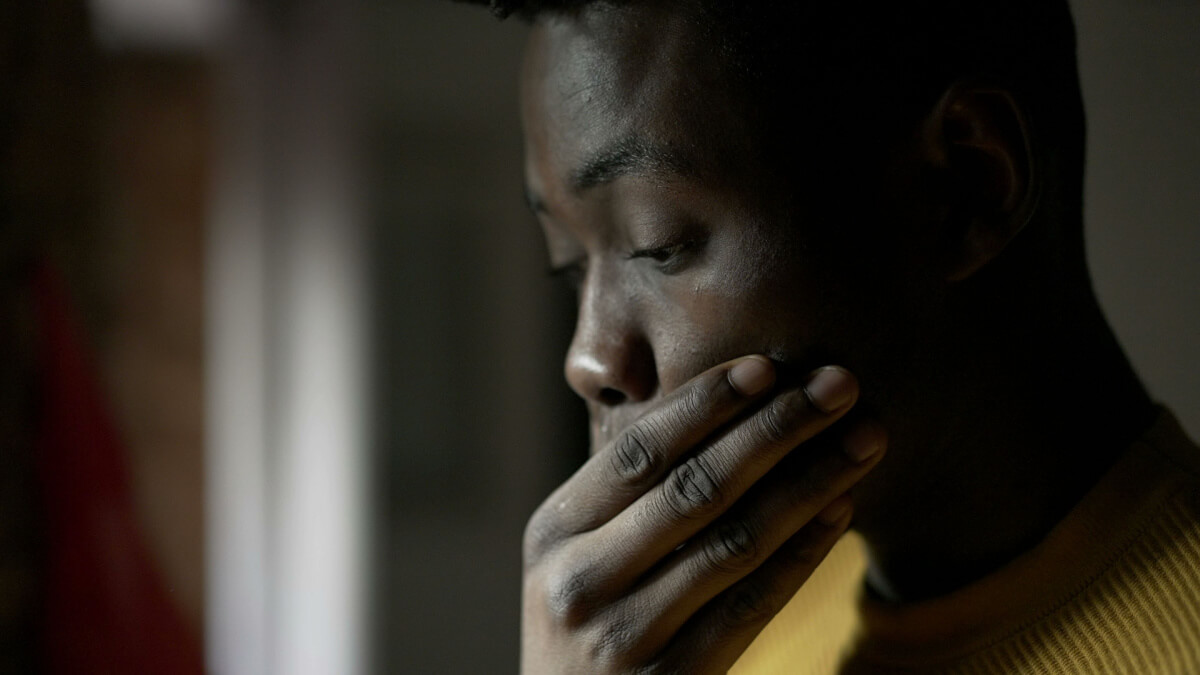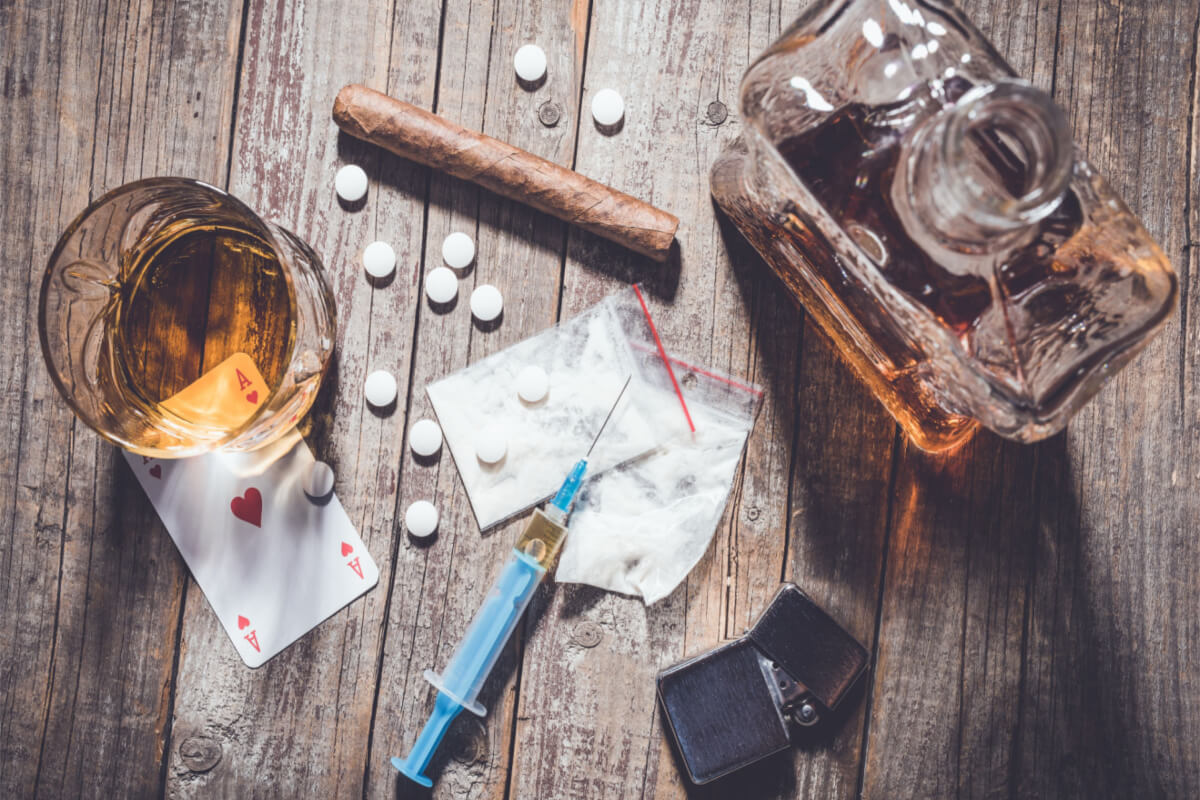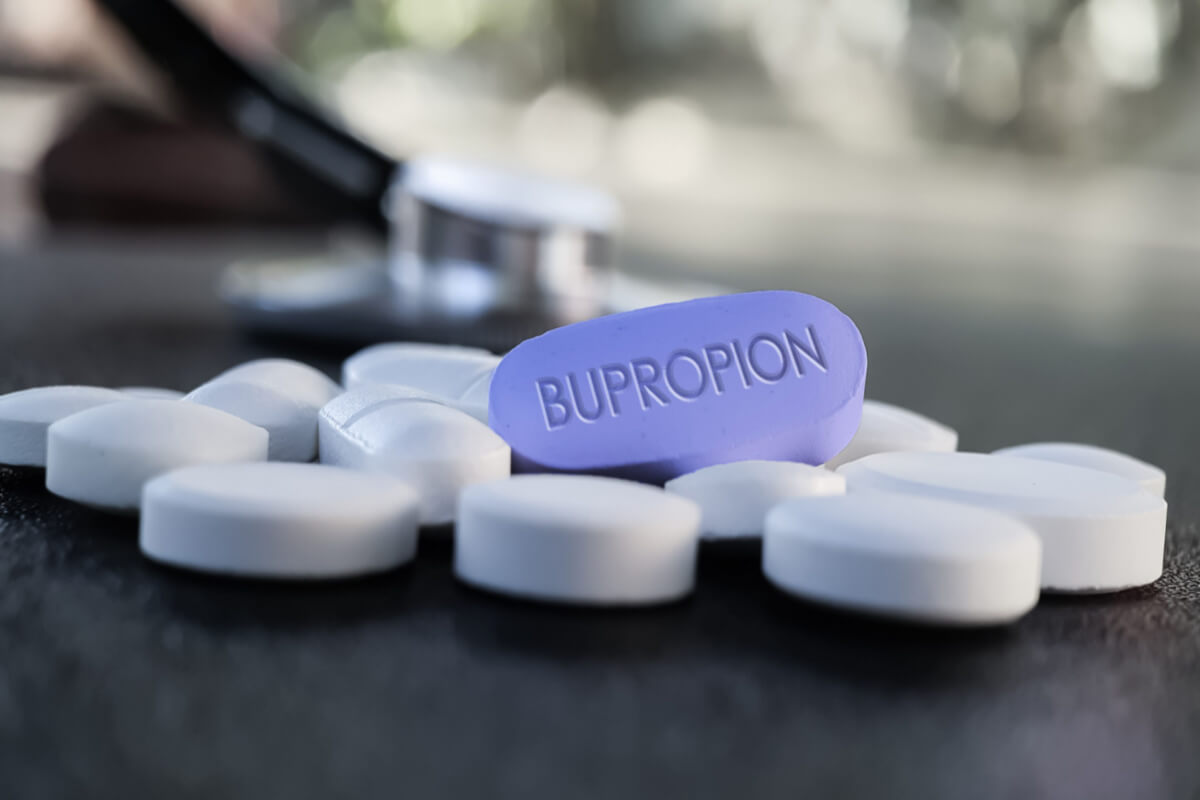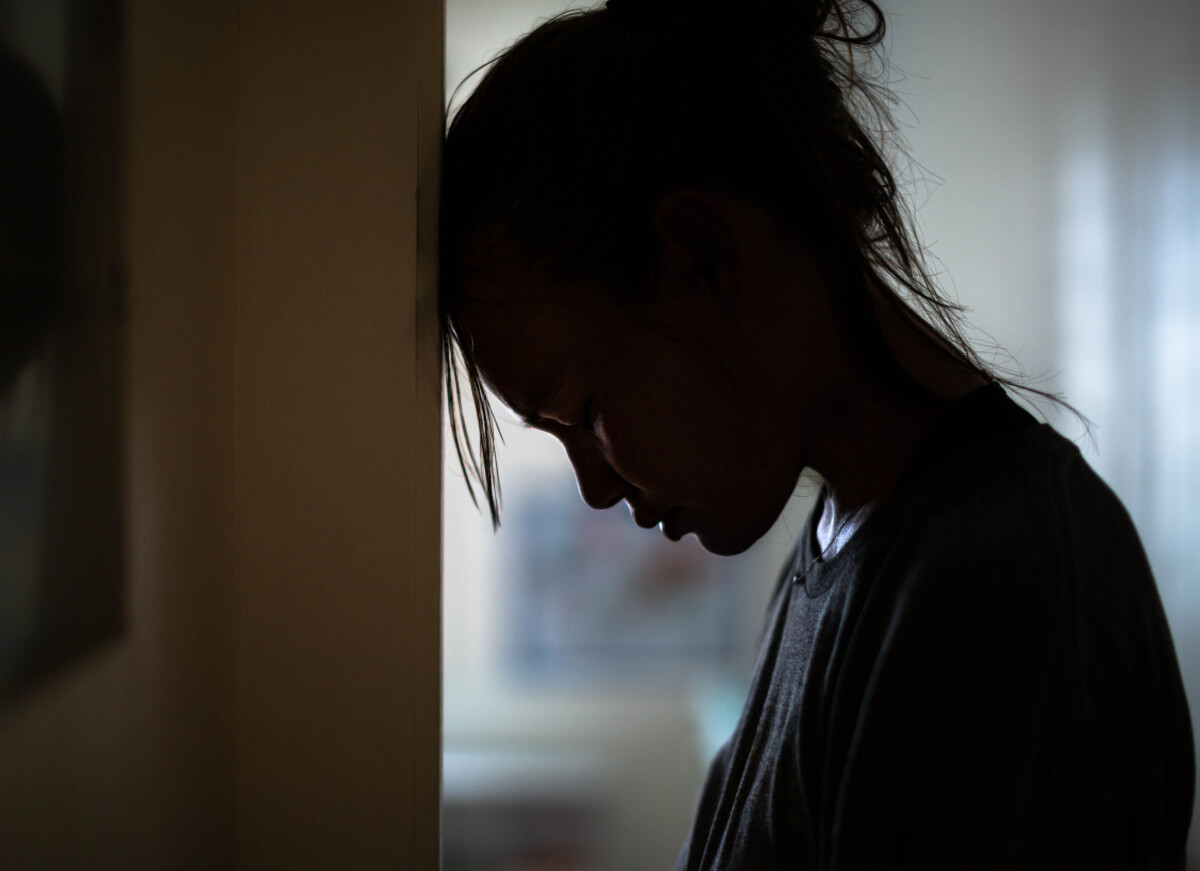Relapse is often a normal part of the recovery process.[1] If you slip, it doesn’t mean your treatment program has failed. Your relapse gives you information about what you should work on with your treatment team to better fortify your addiction recovery going forward.
But a relapse can be dangerous too. If you return to the same dose of drugs you took while your substance use disorder (SUD) was active, you could overdose. You could also find that you’ve returned to a cycle of compulsive substance misuse.
Learning to recognize the three stages of relapse—emotional, mental, and physical—can be a vital part of your recovery. Knowing relapse warning signs can also help you to create a plan for what to do to prevent a full-blown return to drug use.
What Are the 3 Stages of Relapse?
Quick Answer
The three stages of relapse are emotional, mental, and physical: 1. Emotional relapse involves experiencing emotions and moods that could lead to a relapse later on. Warning signs include mood swings, isolation and poor sleeping/eating habits. 2. Mental relapse involves considering using drugs or alcohol, including fantasizing about substance use. Warning signs include strong cravings, spending time with drug-using friends and romanticizing drug use. 3. Physical relapse is returning to substance use, whether full-blown or a slip. Warning signs an outsider (like a family member) might see include lying, neglecting appearance and appearing intoxicated.
What Does It Mean to Relapse?
Though relapse is often unplanned and impulsive, certain warning signs indicate the danger of a potential drug relapse.
Relapse happens when a person returns to old ways of thinking and behaving—most notably, substance misuse. The National Institute on Drug Abuse (NIDA) defines addiction as a chronic condition that involves relapse—or a return to drug use after an attempt to stop. Relapse drug use rates are similar to those seen in other chronic conditions, NIDA says.
Contrary to what most people believe, relapse doesn’t always happen overnight. Rather, it happens in stages, which people may move through at different rates.
The 3 Stages of Relapse Explained
Relapse to drug and alcohol use typically occurs in three phases: [2]
- Emotional
- Mental
- Physical
Stage 1: Emotional Relapse
Emotional relapse occurs when there is a trigger that can cause the individual to become less emotionally stable and prone to mood swings or distress. Triggers might include a fight with a friend or loved one, the loss of a job, financial hardship, etc. The individual may start to neglect the newfound coping techniques that have helped them maintain sobriety.
Warning signs of emotional relapse include:
- Isolating from loved ones
- Mood swings
- Failing to reach out for help
- Poor sleeping and eating habits
- Keeping emotions to oneself
- Avoiding sharing at meetings or not attending meetings
- Defensiveness
- Lack of self-care
- Not engaging in enjoyable hobbies
- Neglecting relapse prevention plan
Why Recognizing Emotional Relapse Signs Is Critical
Recognizing you are in the emotional relapse stage is the first step to avoiding full-blown relapse. Once you realize you’re in this stage, you’ll want to be proactive about escaping it.
How to Combat Emotional Relapse
If you are in the first stage of emotional relapse, there are ways to avoid moving to the second stage, mental relapse.
Try to do the following:
- Journal and reflect on your emotional state and triggers
- Schedule fun sober activities for yourself
- Hang out with a positive support system and friends
- Go to regular therapy sessions or support group meetings
- Express your feelings in a healthy way, such as by dancing, making art, or writing
- Write down and commit to using the coping skills you learned in rehab
- Manage stressors with relaxation strategies like taking a bath or meditating
Stage 2: Mental Relapse
The mental relapse stage is when the person starts having active thoughts of using in order to deal with the emotions they started to experience during emotional relapse. They may start thinking about how they could obtain their drug of choice again, or have thoughts about where and when they would use. They may fantasize about drinking or using drugs as well as make plans to meet up with old friends.
Warning signs of mental relapse include:
- Experiencing strong cravings
- Thinking about places and people associated with substance use
- Spending time with friends who use drugs
- Romanticizing drug or alcohol use
- Convincing yourself you can control your use
- Actively looking for relapse opportunities
- Bargaining, in which you give yourself permission to use in certain situations, such as during the holidays or to celebrate something
Why Recognizing Mental Relapse Signs Is Critical
If you’ve progressed to the second stage of mental relapse, you are at greater risk of physically returning to substance use. During this stage, people are often torn between wanting to use substances and wanting to maintain their recovery. By recognizing mental relapse, you could keep the next phase from taking hold.
How to Deal with Mental Relapse
To deal with mental relapse and prevent it from getting worse, try these strategies:
- Mentally walk through the consequences of deciding to relapse, including an inability to stop, a hangover, shame, or depression
- Confide in a sober mentor or peer
- Confide in a therapist or counselor
- Take your recovery one day at a time and focus on the here and now
- Make a list of the reasons why your life is better now that you’re sober
- Wait the urges out—many urges to use last a short time. Instead of giving in, distract yourself with work or something enjoyable and they may dissipate.
Stage 3: Physical Relapse
Physical relapse is the final stage of relapse when one actually starts drinking alcohol or using drugs again.
Warning signs of physical relapse in a loved one include:
- Lying or engaging in suspicious behavior
- Appearing hungover
- Neglecting appearance
- Going through withdrawal if they can’t obtain more drugs
- Withdrawing from loved ones
- Appearing intoxicated
- Coordination and cognitive issues
- Finding empty pill bottles or other paraphernalia
Why Recognizing Physical Relapse Signs Is Critical
Physically relapsing doesn’t mean that someone has failed. It simply means that they may need more support or a higher level of care right now. By recognizing physical relapse signs, families can step in and help the person find the care and support they need to build a healthier life.
The structure and routine of an addiction treatment program can help the person get back on track after a physical relapse, reinforce coping skills, teach new relapse-prevention strategies and provide an outlet for problems or triggers.
Getting Help After a Physical Relapse
If you aren’t attending any treatment at the moment, you may want to enroll in a program again, such as these:
- Inpatient drug rehab
- Partial hospitalization program (PHP)
- Intensive outpatient program (IOP)
- Standard outpatient program
A treatment program might include the following elements.
Therapy
Cognitive behavioral therapy (CBT) is one of the most effective tools for managing warning signs and negative thinking patterns. It aims to help individuals recognize the early warning signs that may lead to relapse and develop coping skills to help prevent it. Research shows CBT can help people with substance use disorders get control.[3]
Like some other forms of therapy, CBT helps patients recognize, avoid, and cope with the situations where they are most likely to use drugs. The key to recovery is building a life that makes it easier not to use.
Medication for Addiction Treatment
If you are addicted to alcohol or opioids, you may want to consider a Medication for Addiction Treatment (MAT) program in which your doctor uses medications, such as Suboxone, methadone, or naltrexone, combined with therapy to help manage your condition.
And if you were already taking medication for opioid use disorder or alcohol use disorder, a relapse could mean that you need a higher dose or might want to consider switching medications.
Tips to Help You Avoid Relapsing
Preventing relapse is a critical part of any treatment program. The longer you stay away from drugs, the more your brain cells can heal and begin functioning normally.
Experts recommend four broad strategies:[4]
1. Therapy
Keep your appointments with your therapy team, and be open and honest about your progress in each session. If you don’t think therapy is helping you, ask for a different type of treatment. Plenty of options exist if CBT isn’t right for you. Speak up about what you want and need.
2. Medications
Take your MAT medications per your doctor’s orders. If you don’t think your dose is strong enough, talk with your doctor and describe your symptoms. If you’re tempted to stop taking your medications so you can return to drug use, tell your doctor about that urge.
3. Monitoring
Your doctor might check your urine or saliva for drugs to determine if you’re using again. Never try to cheat on your tests. Testing is used in order to help you to set treatment goals, not to punish you for relapses.
4. Peer Support
Connect with a group like Alcoholics Anonymous (AA) and Narcotics Anonymous (NA) and talk with others in recovery. Use these meetings when you’re in crisis, so you’ll have something to do instead of returning to drugs.
Be honest with yourself and your treatment team about your thoughts, feelings, and cravings. Use techniques like meditation to help you get familiar with inner dialogue. And never be afraid to tell your doctor about your relapse risks.
How Can Families & Friends Help?
Family members are often the first to notice relapse triggers, such as changes in mood and behavior. Your ability to offer support is critical. You could help the person connect with treatment, resources and services to stay in recovery.[6]
If you’ve noticed any of the warning signs of relapse, take action with these steps:[7]
- Pick a quiet space to talk. If the person has already relapsed, identify a time in which they’re likely to be sober.
- Tell the person about the warning signs you’ve seen. Use “I” statements to identify how they impact you.
- Outline your ideas for making things better, such as connecting the person with a therapist.
- Reiterate how much you care and why you’re worried about recovery.
- Let the person tell you how they’re feeling and what they want to do next.
A conversation that follows this model might sound like this:
“I’ve noticed that you’re not eating regular meals, and I’ve heard you watching videos on your phone until the early hours of the morning. I’m worried that you’re struggling with an emotional relapse. I know your support group meets tomorrow night. Talking with others might help. I’ll drive you if that’s helpful. I care about you so much. How does this idea sound to you? Is there anything else I can do to help?”
Some people respond to these conversations immediately. Others need time to digest what’s been said before they’re ready to change. Stay committed to helping the person however you can.
Worried About Relapsing?
Bicycle Health uses Suboxone as part of a comprehensive MAT program for people with OUD. Our unique telemedicine approach means you get the help you need, no matter where you live. Schedule an enrollment call or contact us at (844) 943-2514 to learn more.

Reviewed By Peter Manza, PhD
Peter Manza, PhD received his BA in Psychology and Biology from the University of Rochester and his PhD in Integrative Neuroscience at Stony Brook University. He is currently working as a research scientist in Washington, DC. His research focuses on the role ... Read More
- Treatment and Recovery. National Institute on Drug Abuse. https://nida.nih.gov/publications/drugs-brains-behavior-science-addiction/treatment-recovery. July 2020. Accessed January 2023.
- Relapse Prevention and the Five Rules of Recovery. Yale Journal of Biology and Medicine. https://www.researchgate.net/publication/281513257_Relapse_Prevention_and_the_Five_Rules_of_Recovery. September 2015. Accessed January 2023.
- A Meta-Analysis of Cognitive-Behavioral Therapy for Alcohol or Other Drug Use Disorders: Treatment Efficacy by Contrast Condition. Journal of Consulting and Clinical Psychology. https://psycnet.apa.org/record/2019-60860-001. 2019. Accessed January 2023.
- Addiction Relapse Prevention. StatPearls. https://www.ncbi.nlm.nih.gov/books/NBK551500/. May 2022. Accessed January 2023.
- Treatment and Recovery. National Institute on Drug Abuse. https://nida.nih.gov/publications/drugs-brains-behavior-science-addiction/treatment-recovery. July 2020. Accessed January 17, 2024.
- Resources for Families Coping with Mental and Substance Use Disorders. Substance Abuse and Mental Health Services Administration. https://www.samhsa.gov/families. March 2023. Accessed January 17, 2024.
- How to Help Someone Who Is Misusing Drugs or Alcohol. Health Direct. https://www.healthdirect.gov.au/help-someone-who-is-misusing-drugs-or-alcohol. October 2021. Accessed January 17, 2024.
Download Our Free Program Guide
Learn about our program, its effectiveness and what to expect
Related articles
Imagine what’s possible on the other side of opioid use disorder.
Our science-backed approach boasts 95% of patients reporting no withdrawal symptoms at 7 days. We can help you achieve easier days and a happier future.
